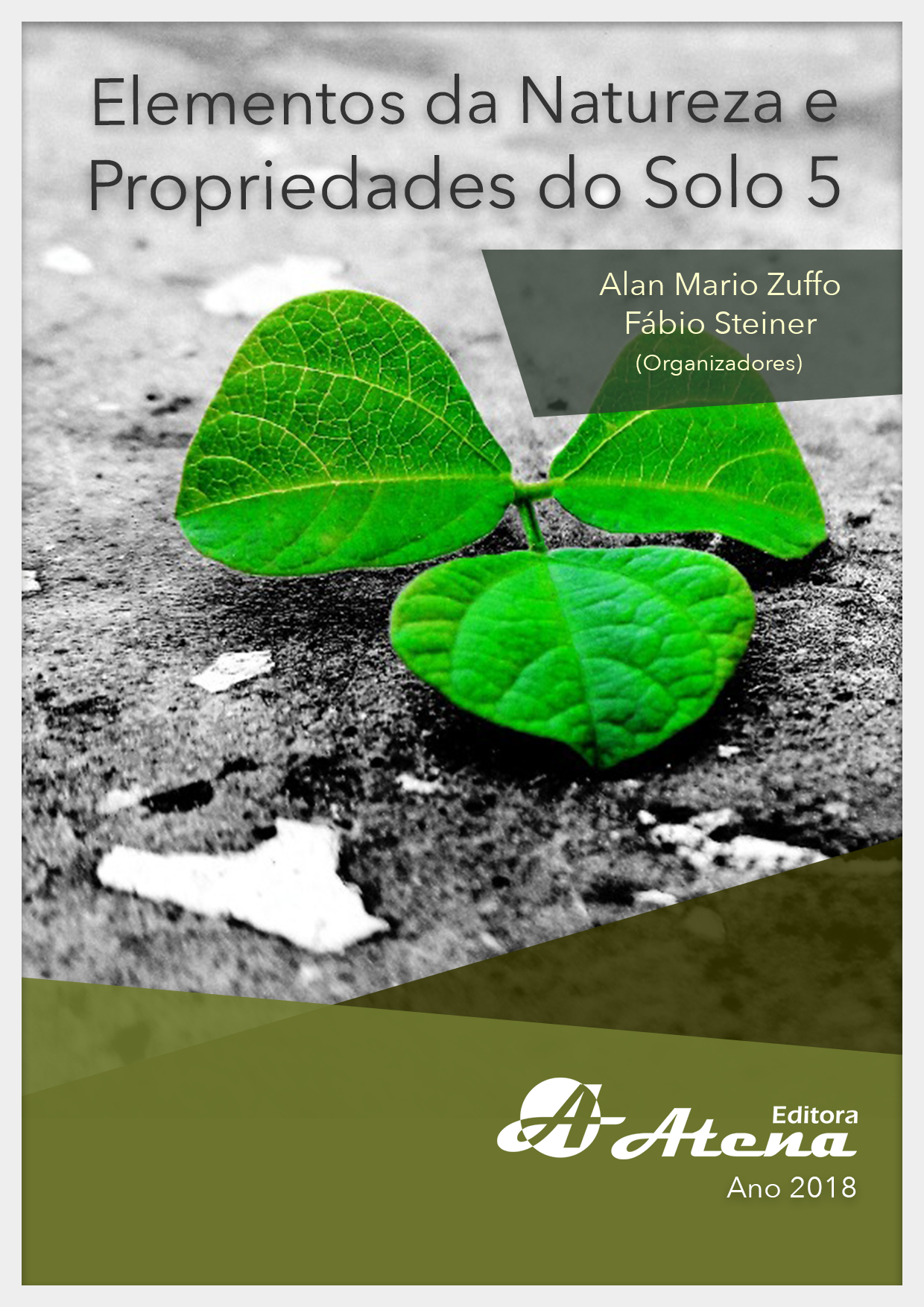
INFLUÊNCIA DA ADUBAÇÃO ORGANOMINERAL DE BIOSSÓLIDO NO CALDO DA CANA-DE-AÇÚCAR EM UM SOLO ARGILOSO
O Brasil ocupa o primeiro lugar na
produção mundial de cana-de-açúcar com 9,07
milhões de hectares. Fertilizantes organominerais
são alternativas sustentáveis como incremento
de fontes nutricionais. O objetivo do trabalho foi
avaliar a influência da adubação organomineral
de biossólido e do bioestimulante na porcentagem
do açúcar total recuperável (ATR em kg t-1),
produtividade de Pol da cana (TPH em t ha-1) e
no rendimento de etanol (L t-1). O delineamento
experimental foi em blocos casualizados com
fatorial 5x2+1, sendo cinco tratamentos, 0; 60;
80; 100 e 120% (com e sem bioestimulante)
mais um adicional (adubação 100% mineral) em
quatro repetições. As unidades experimentais
constituíram de 7,5 m de largura x 10 m de
comprimento, compostas por seis linhas de
cana-de-açúcar em espaçamento de 1,5 m. Foi
utilizado bioestimulante enraizador Stimulate®
via inoculação (0,75 L ha-1) e volume de calda de
100 L ha-1 sobre os toletes no sulco de plantio.
Foi avaliado no momento da colheita aos 370 dias
após plantio (DAP) as características tecnológicas
do caldo da cana-de-açúcar ATR, TPH e Litros de
Etanol. Os resultados foram submetidos à análise
de variância, realizada pelo teste F a 5% de
probabilidade, e as médias comparadas pelo teste
de Tukey e Dunnett a 0,05 de significância. Não
houve diferença significativa para ATR, e Litros de
Etanol quanto as fontes avaliadas. Stimulate®
incrementou produtividade de açúcar na cultura
em 2,5 t ha-1 ou 12,9 %, sendo indiferente quanto
a fonte mineral
INFLUÊNCIA DA ADUBAÇÃO ORGANOMINERAL DE BIOSSÓLIDO NO CALDO DA CANA-DE-AÇÚCAR EM UM SOLO ARGILOSO
-
DOI: Atena
-
Palavras-chave: Biossólido; Stimulate®; Saccharum spp.
-
Keywords: Biosolid; Stimulate®; Saccharum spp.
-
Abstract:
Brazil ranks first in the world
production of sugarcane with 9.07 million
hectares. Organomineral fertilizers are sustainable
alternatives such as the increase of nutritional
sources. The objective of this work was to evaluate
the influence of organomineral biosolids and
biostimulant fertilization on the percentage of
total recoverable sugar (ATR in kg t-1), cane Pol productivity (TPH in t ha-1) and ethanol yield L t-1). The experimental design was in randomized
blocks with factorial 5x2+1, being five treatments, 0; 60; 80; 100 and 120% (with and
without Biostimulant) plus one additional (100% mineral fertilization) in four replicates. The
experimental units consisted of 7.5 m wide x 10 m long, composed of six lines of sugarcane
in spacing of 1.5 m. Stimulate® rooting biostimulant was inoculated via inoculation (0.75
L ha-1) and 100 L ha-1 syrup volume on the stalks in the planting groove. The technological
characteristics of the sugarcane broth ATR, TPH and Liters of Ethanol were evaluated at the
time of harvest at 370 days after planting (DAP). The results were submitted to analysis
of variance, performed by the F test at 5% of probability, and the means compared by the
Tukey and Dunnett test at 0.05 of significance. There was no significant difference for ATR,
and Liters of Ethanol as the sources evaluated. Stimulate® increased sugar yield in the
crop by 2.5 t ha-1 or 12.9%, regardless of the mineral source.
-
Número de páginas: 15
- Israel Mendes


